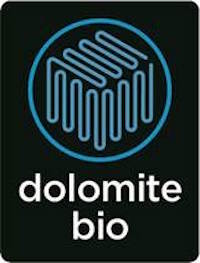Members Login

Channels
Special Offers & Promotions
Dolomite Lends a Helping Hand to Synthetic Biology Research
Dolomite microfluidic chips are helping researchers from the Biodesign Institute at Arizona State University (ASU) to develop novel enzymes capable of polymerising synthetic nucleotides.
 Using these chips, the team has created a droplet-based optical polymerase sorting (DrOPS) technique allowing rapid screening for novel polymerase activities in uniform water-in-oil microcompartments. The team’s leader, Professor John C. Chaput – formerly at ASU and currently at the University of California, Irvine – explained: “The creation of synthetic nucleic acids is of great interest to synthetic biologists but, because they are not found in nature, wild type polymerases struggle to process them. To overcome this issue, we are developing novel polymerases using directed evolution in water-in-oil microcompartments. The DrOPS methodology has significant advantages over traditional methods, which are both labour intensive and impractical to perform on a large scale due to the amount of precious artificial nucleotide reagents required for screening.”
Using these chips, the team has created a droplet-based optical polymerase sorting (DrOPS) technique allowing rapid screening for novel polymerase activities in uniform water-in-oil microcompartments. The team’s leader, Professor John C. Chaput – formerly at ASU and currently at the University of California, Irvine – explained: “The creation of synthetic nucleic acids is of great interest to synthetic biologists but, because they are not found in nature, wild type polymerases struggle to process them. To overcome this issue, we are developing novel polymerases using directed evolution in water-in-oil microcompartments. The DrOPS methodology has significant advantages over traditional methods, which are both labour intensive and impractical to perform on a large scale due to the amount of precious artificial nucleotide reagents required for screening.”
The Biodesign Institute turned to microfluidics to allow rapid sorting and screening of novel polymerases, taking advantage of the technique’s single-cell encapsulation capabilities and picolitre reaction volumes. Dr Andrew Larsen commented: “We needed very reproducible microfluidics, and so using commercially available chips was preferable. We already had experience with Dolomite’s chips for a variety of applications within the institute, and they have always been very consistent, so the choice was obvious. These chips give us the ability to consistently generate uniform droplets – both single and double emulsion droplets – offering spatial separation between cells and allowing fluorescence-based sorting using conventional FACS technologies. Dolomite has also been very supportive of our efforts, helping to accelerate this area of research.”
Media Partners


